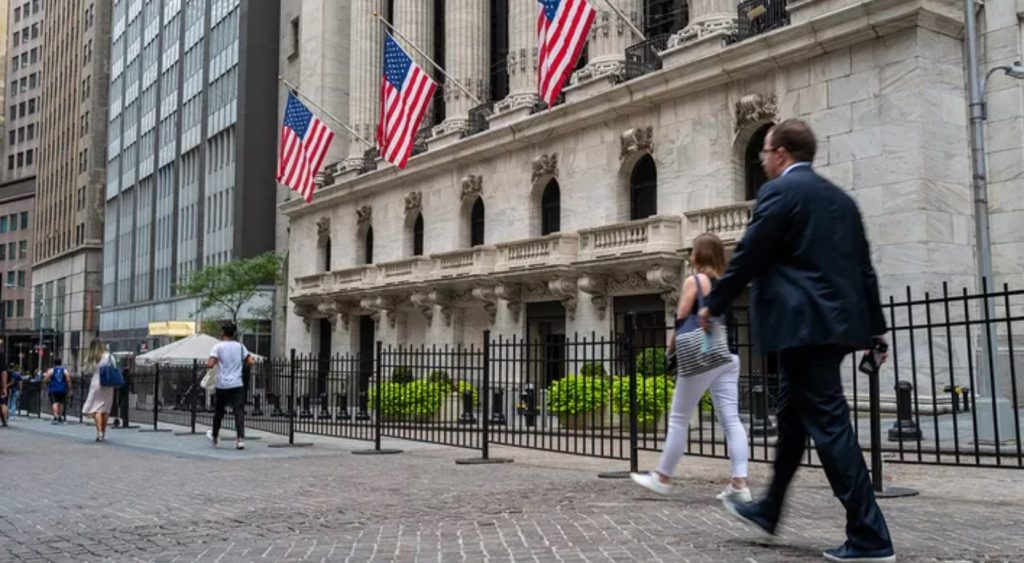
The recent rally in the U.S. stock market will likely prove to be short-lived, according to Morgan Stanley analysts.
Equities have climbed steadily high since mid-June, thanks to some weaker economic data that buoyed expectations of a dovish Federal Reserve and solid quarterly earnings reports from big companies that proved mostly resilient to inflation. The S&P 500, Dow Jones Industrial Average and Nasdaq Composite all notched their best month since late 2020 in July.
But the relief rally is unlikely to last long as investors continue to weigh scorching-hot inflation, a slowdown in economic growth and higher interest rates, Morgan Stanley strategist Michael Wilson said in a Monday analyst note. Wilson predicted that share prices will slide in the second half of the year as investors digest the increasingly grim economic outlook.
“The macro, policy and earnings set-up is much less favorable for equities today,” Wilson wrote in a note, adding that worse-than-expected earnings reports over the next few months could trigger another market rout. “The risk/reward is unattractive and this bear market remains incomplete.”
A cooler-than-expected inflation report last week that showed consumer prices rose 8.5% in July – a slower pace than economists expected – raised hopes that the Fed could start to slow the magnitude of its interest rate hikes. But Wilson said that inflation is “not likely to come off at a pace fast enough to spur the type of sustained Fed pause the equity market is already discounting.”
After a blisteringly hot July jobs report showed that employers added 528,000 jobs last month, nearly double what economists expected, Wilson sees a far slimmer chance of a dovish policy path for the Fed.
“Our fair value framework suggests the market’s ERP is ~150 basis points too low based on current data,” he said.
There is a growing consensus on Wall Street that the Federal Reserve will trigger a recession as it battles inflation with a series of aggressive interest rate hikes. Policymakers approved the second consecutive 75-basis point rate hike in July and have indicated that another super-sized rate hike is on the table in September, depending on forthcoming economic data.
Fed Chairman Jerome Powell has said that tackling inflation remains the central bank’s No. 1 priority, even if it means risking a downturn — though he stressed that he does not believe the U.S. is currently in a recession.
“We think it’s necessary to have growth slow down,” he said in July. “We actually think we need a period of growth below potential in order to create some slack so that the supply side can catch up.”
